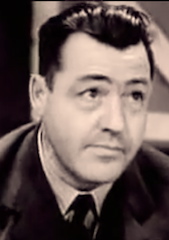Staton, William Ernest
- Date of birth:
- August 27th, 1898 (Tutbury/Staffordshire, Great Britain)
- Date of death:
- July 22nd, 1983 (Emsworth/Hampshire, Great Britain)
- Service number:
- 04225
- Nationality:
- British
Biography
Having reached 'ace'-status during the first wold war he assumed command of No. 10 Squadron a year before the start of WW2. Following the end of his first tour in June 1940, Staton assumed command of R.A.F. Leeming after which he was appointed an A.D.C. to the King in December of that year.
The profile picture comes from the propaganda film 'Target for Tonight' in which he starred.
Next appointed Senior Air Staff Officer, H.Q. Far East, in July 1941, in the acting rank of Air Commodore, Staton was assigned to West Group, Java, in early 1942, in which capacity he was taken P.O.W. by the Japanese on 10 March.
For his stoic and gallant conduct at the hands of the Japanese, during which he was moved sixteen times, from camp to camp in Batavia, Singapore, Japan, Formosa, the Gobi Desert and lastly from Mukden to Siam, Staton was mentioned in despatches.
Do you have more information about this person? Inform us!
- Period:
- First World War (1914-1918)
- Awarded on:
- June 22nd, 1918
- Period:
- First World War (1914-1918)
- Awarded on:
- September 21st, 1918
"This officer has already been awarded the Military Cross for gallantry and devotion to duty. Since this award he has accounted for eleven enemy aeroplanes - nine destroyed and two shot down out of control. He has proved himself a most efficient Flight Commander and an enterprising leader, setting a fine example to his squadron."
- Period:
- First World War (1914-1918)
- Awarded on:
- December 3rd, 1918
Second DFC awarded as a bar for on the ribbon of the first DFC.
- Period:
- Second World War (1939-1945)
- Period:
- Second World War (1939-1945)
- Period:
- Second World War (1939-1945)
- Rank:
- Wing Commander
- Unit:
- No. 10 Squadron, Royal Air Force
- Awarded on:
- February 20th, 1940
This was the first of in total two awards of the Distinguished Service Order to officers of the Royal Air Force since the outbreak of war.
- Period:
- Second World War (1939-1945)
- Rank:
- Wing Commander
- Awarded on:
- February 20th, 1940
- Period:
- Second World War (1939-1945)
- Rank:
- Wing Commander
- Unit:
- No. 10 Squadron, Royal Air Force
- Awarded on:
- June 7th, 1940
"Wing Commander Staton is recommended for this special award because of his outstanding gallantry in recent operations and of his continued leadership in the air. He led the attack on the oil depot at Bremen on the night of 17-18 May 1940. The target was very heavily defended and difficult to identify because of the exceptional number of searchlights. After one hour worrying and misleading the defences, he attacked in a dive coming down to 1000 feet to ensure hitting the target. His aircraft was hit by six shells, the last one breaking the aileron and part of the wing and compelling him, as damage continued in flight, to return to base across the North Sea at 90 m.p.h. Beyond this speed the aircraft became uncontrollable.
Wing Commander Staton organises and leads his squadron on all new tasks - Sylt, Oslo, Stavangar, the Ruhr and finally on 22-23 May in the Ardennes, where his aircraft was again hit.
His leadership and courage in the air and his magnificent work on his station is so constant that it could easily be taken for granted, but the effect is so valuable and inspiring that recognition should not be withheld because of past awards."
Received as bar for on the ribbon of the first DSO.
Published in the London Gazette dated 7th June 1940.
- Period:
- Second World War (1939-1945)
- Period:
- Second World War (1939-1945)
- Period:
- Second World War (1939-1945)
- Period:
- Second World War (1939-1945)
- Period:
- Second World War (1939-1945)
- Period:
- Second World War (1939-1945)
- Period:
- Second World War (1939-1945)
- Rank:
- Air Commodore
- Awarded on:
- October 1st, 1946
"In recognition of gallant and distinguished service whilst prisoners of war in Japanese hands."
- Period:
- Second World War (1939-1945)
- Awarded on:
- January 1st, 1947
Sources
- Photo 1:
- Photo: Wikipedia
- - Supplement to The London Gazette Issue 34795 published on the 20 February 1940
- The London Gazette, Issue 34866, dated Friday 7 June 1940
- Flight Global - Archive
- Dix Noonan Webb

















